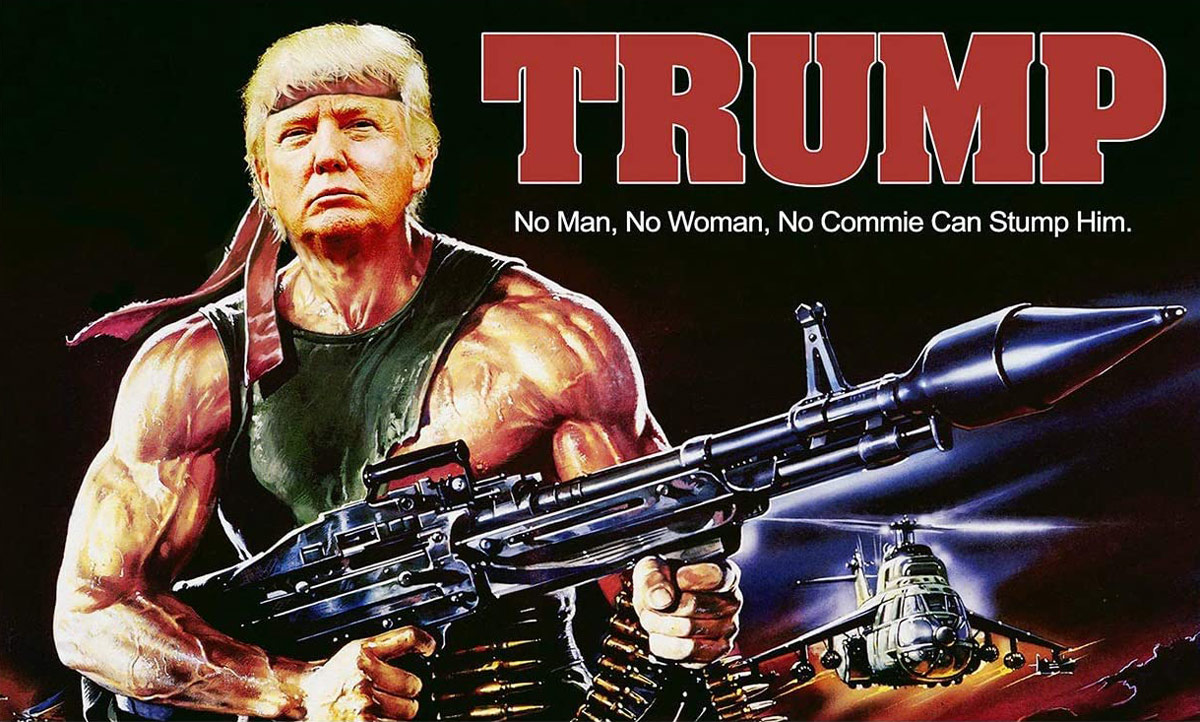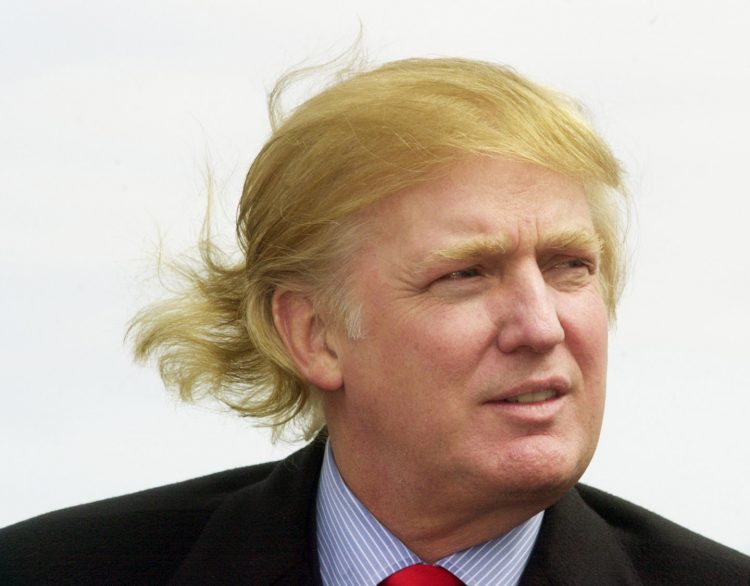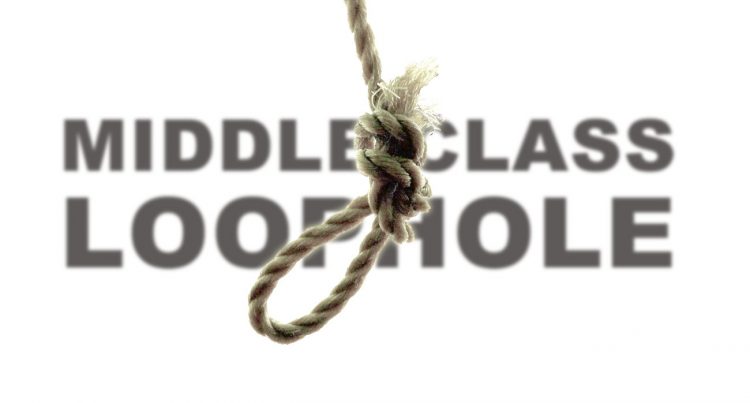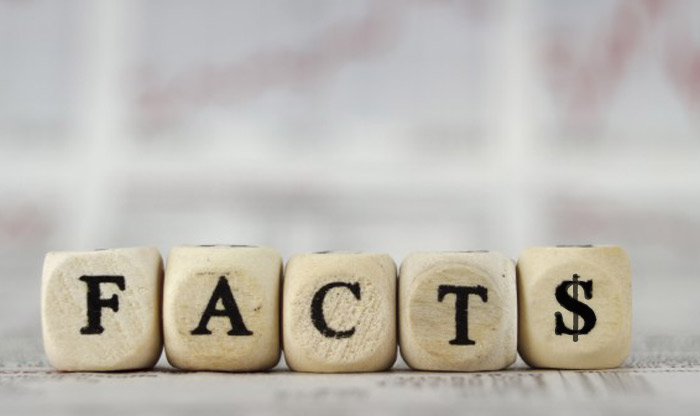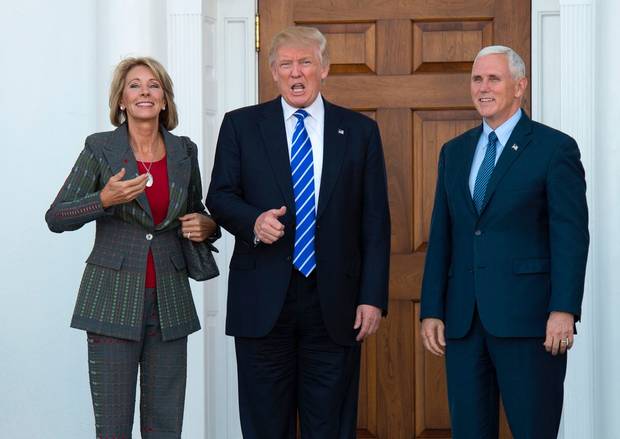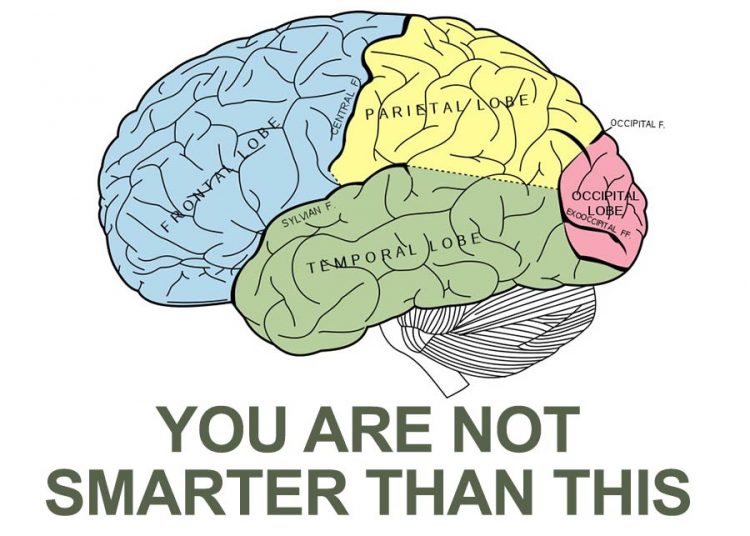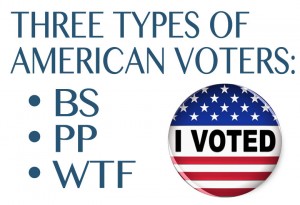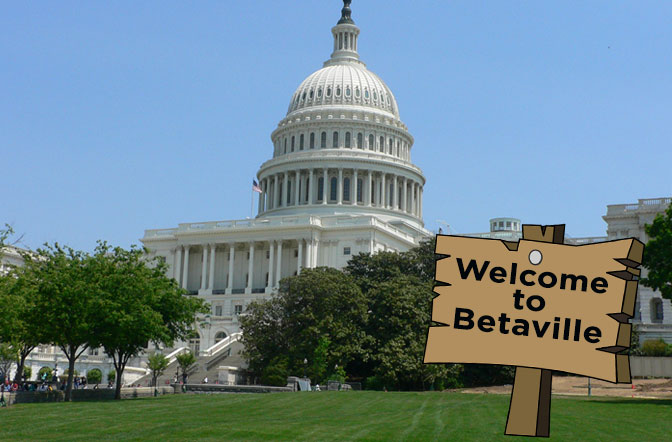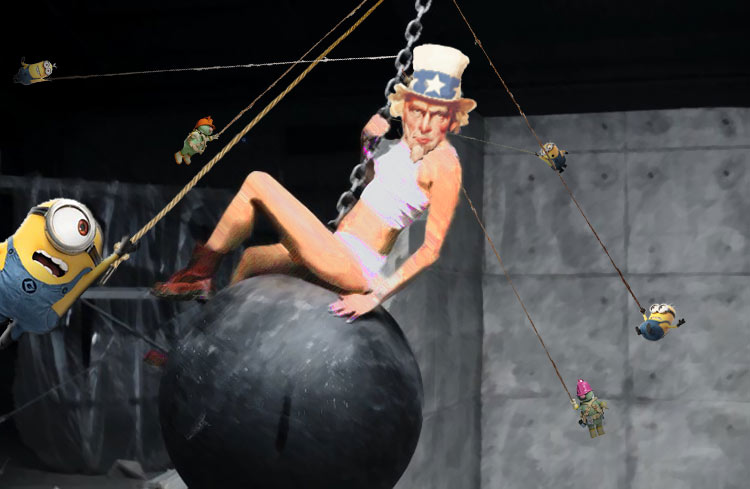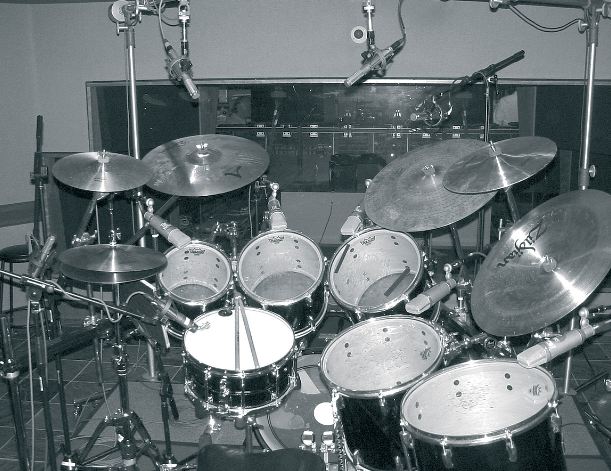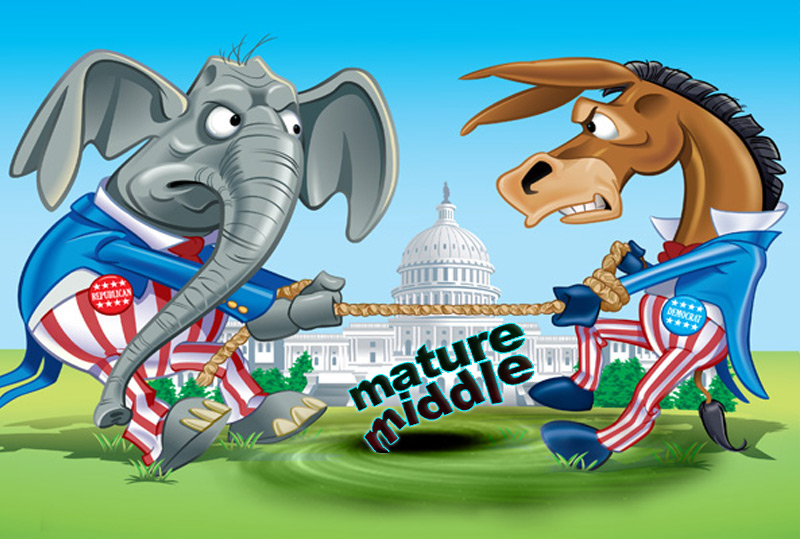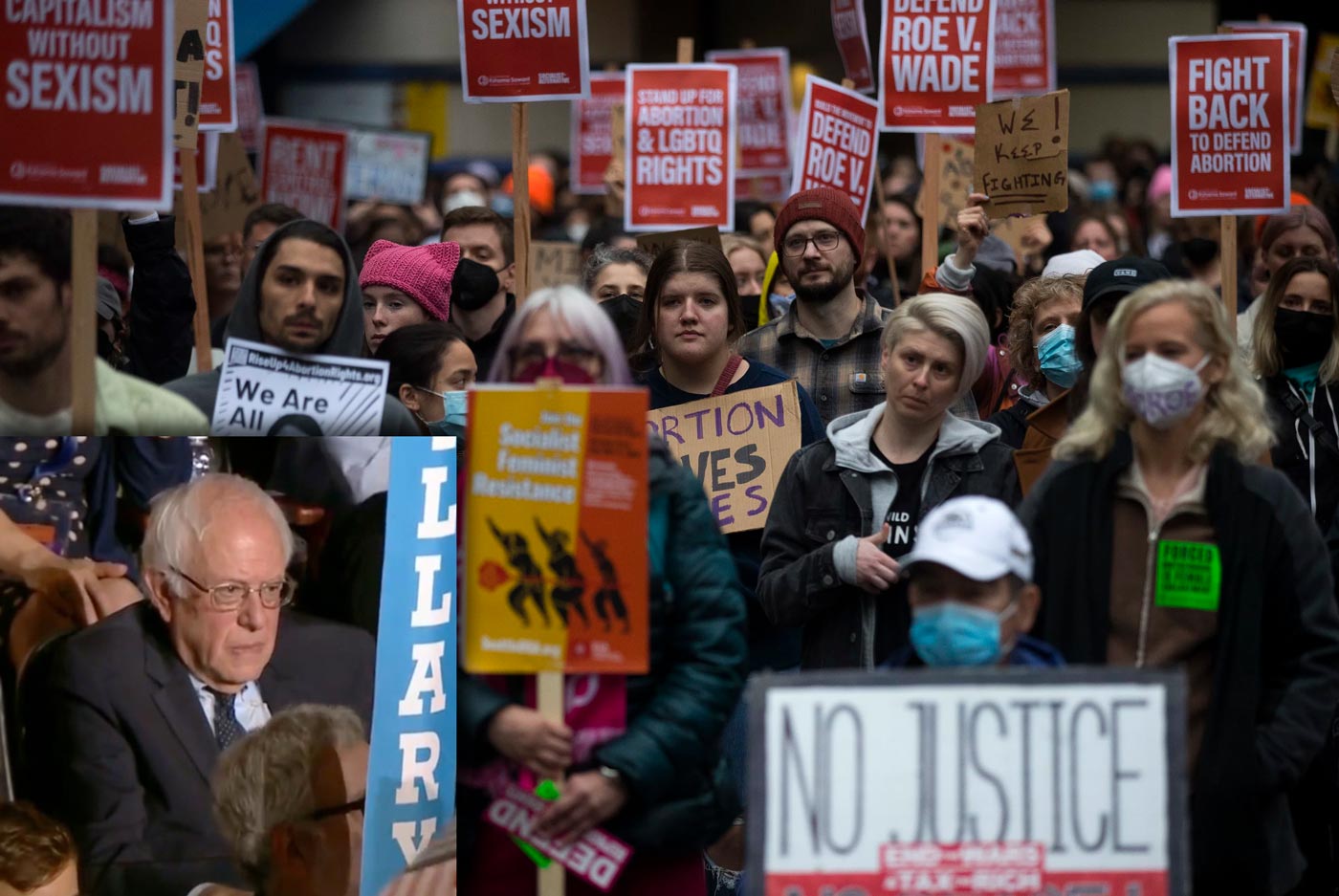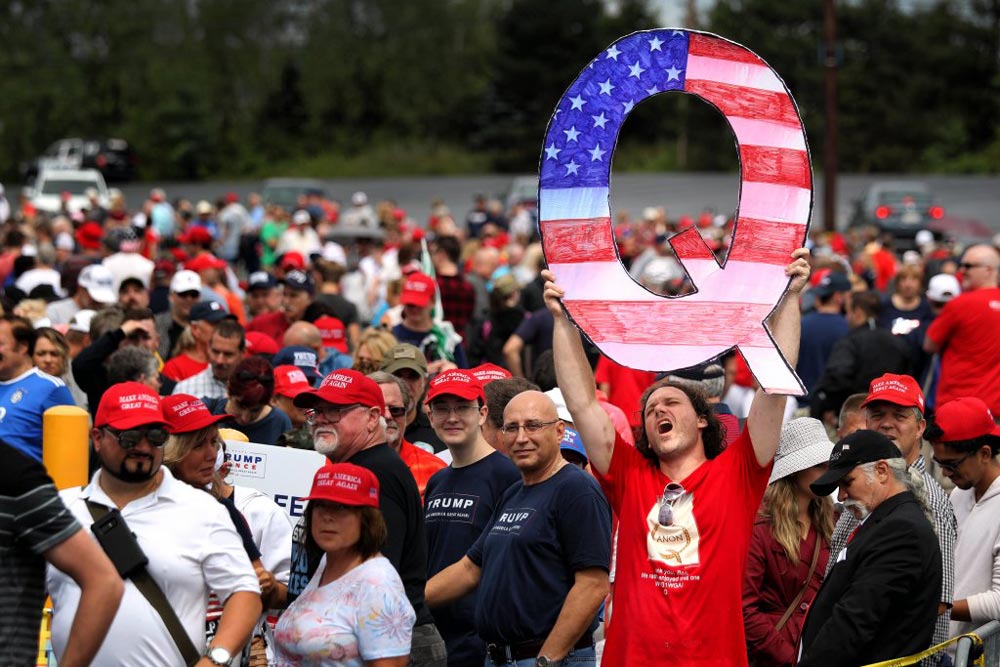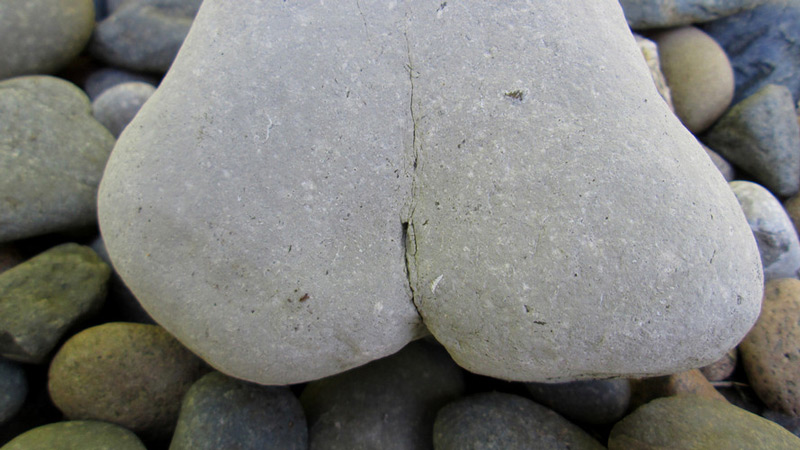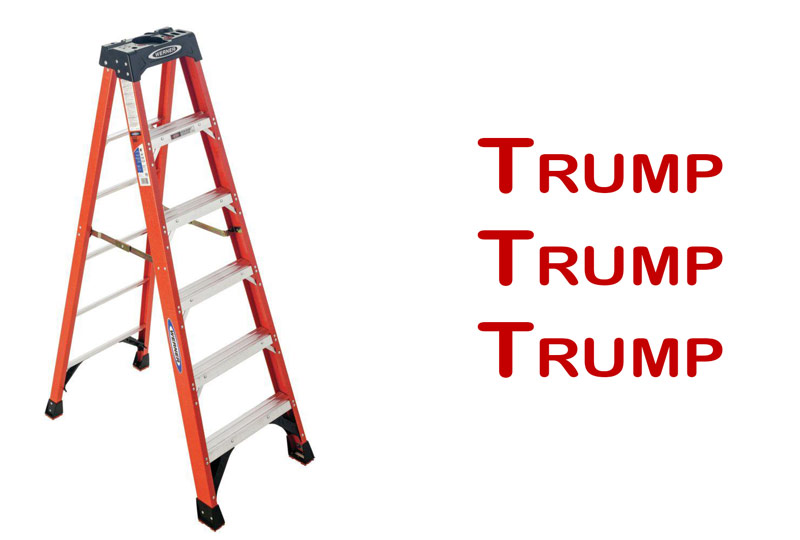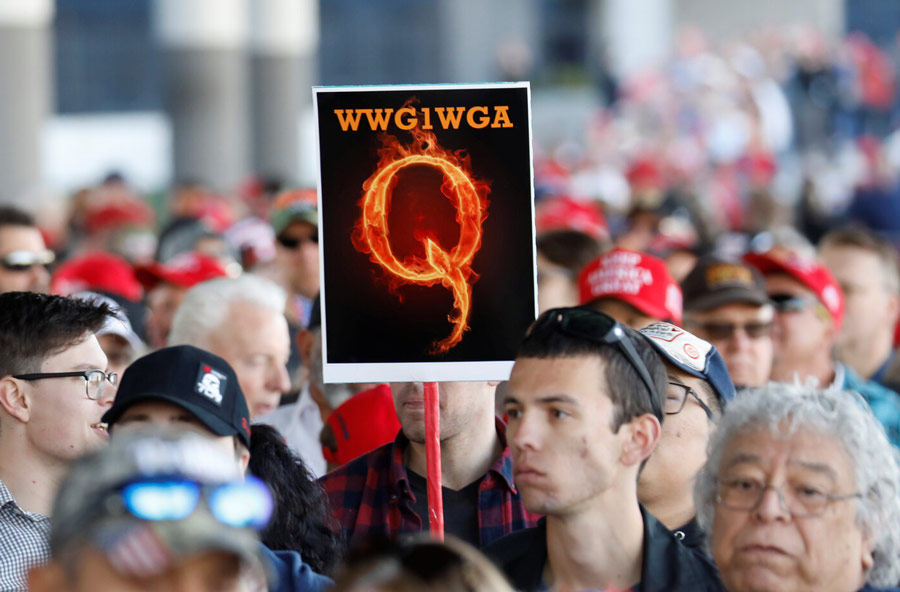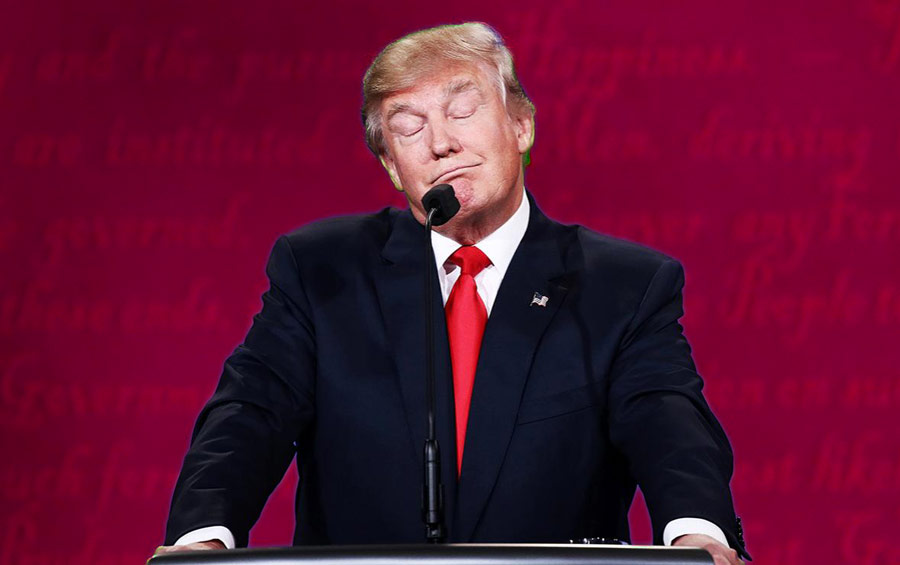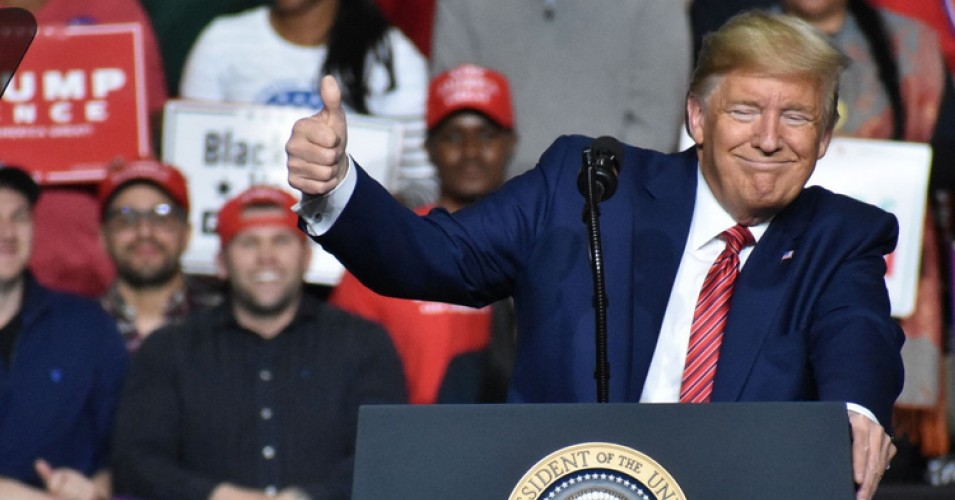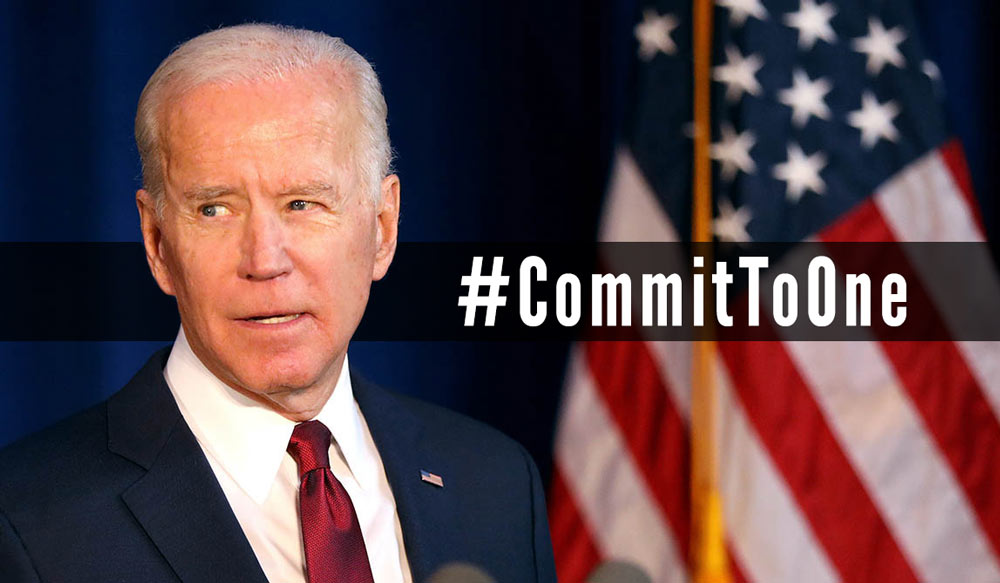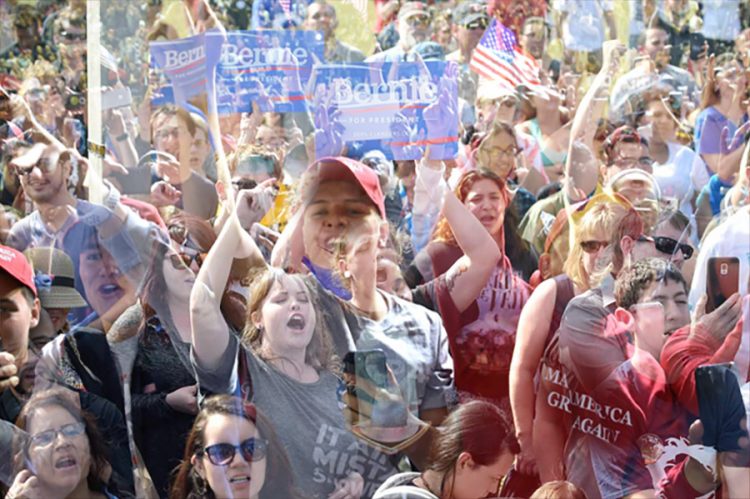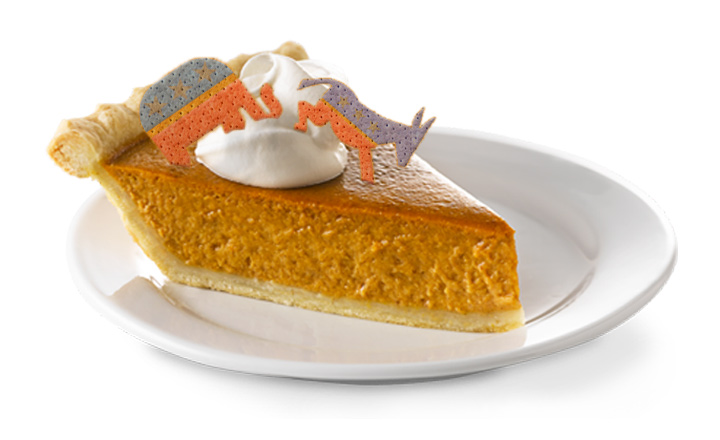 Back in the day (… yes, I am allowed to start Sweet Memory sentences such ways…); back when the family lived close enough to sit around the same table on holidays, we had one very important tradition. Said tradition was just as vital to the holiday gobble as ham, turkey, yams, and cranberry sauce that goes “sssllluurrrp, plop, wobble” when slapped out of its can:
Back in the day (… yes, I am allowed to start Sweet Memory sentences such ways…); back when the family lived close enough to sit around the same table on holidays, we had one very important tradition. Said tradition was just as vital to the holiday gobble as ham, turkey, yams, and cranberry sauce that goes “sssllluurrrp, plop, wobble” when slapped out of its can:
The Post-Dinner Political Argument.
The contestants were always the same: “The Brooklyn Sister” (sitting comfortably in the left corner, wearing a PhD in theater history and the heart-ripping empathy of a Sarah McLachlan SPCA commercial), and “The Nebraska Uncle” (sitting even more comfortably in the red corner, wearing the wealth of a heart surgeon and the heart-piercing sarcasm of Gregory House). Red State Wealth v. Blue State Academic Elite. It always proved an epic fight, and the children were grateful we were invited to the grown ups table in order to witness every nail-biting round.
Grandmother was the referee. My Mom kept the time.
The starting bell was desert.
Like I said: a capital ‘T’ Tradition. Holidays were otherwise considered incomplete.
Arguing about politics is just as much an American tradition as Thanksgiving and the Fourth of July. It’s not isolated to Americans, however. Arguing politics might very well be in human DNA. But why? (and how, for that matter). Why, exactly, do people argue about politics? [ Arguing politics so much so that pumpkin pie ends up decorating the dining room walls… the cousins really loved that particular year. Grandmother was not pleased. (But she certainly did laugh… if I remember correctly, the adhesiveness of the pie was a required demonstration to prove a red corner point about state university pension programs. All is fair and nothing is safe when arguing politics. Especially pies. I was thankful that year for the apple escaping unscathed.) ]
People Like Arguing about Politics Because They Believe
 It’s funny. Belief pops its head like the Whac-a-Mole of this website. Makes sense, though. We wouldn’t do anything if we didn’t believe. In the deepest and lightest-touch sense, “to believe” is the most fundamental and omnipresent human motivation.
It’s funny. Belief pops its head like the Whac-a-Mole of this website. Makes sense, though. We wouldn’t do anything if we didn’t believe. In the deepest and lightest-touch sense, “to believe” is the most fundamental and omnipresent human motivation.
The belief might be simple and supported by facts, like food eases hunger. Or it might be something bigger and less certain, like studying theater history will result in a fruitful career when all those around you squint and say, “…whaa?”
Somewhere in everywhere we find Belief. Even the Big Bang. It’s the point where we start to capitalize words because we’ve either reached their perfect essence, or, “…man… I got no freakin’ clue… You?”
God, Love, Music, Truth, Coffee, and yes, even Politics. Where Essence and Undefinable shake hands on the street corner of Existence and Creation: Belief. (There is a streetlamp, but I don’t know who put it there.) The intensity and complexity of a belief’s capitalized object determines how many pies are stuck on walls, how many clowns in Congress, and stars in the sky.
Some beliefs require a leap of faith. Some a ticket to ride. Some a website. The objects of belief are scalable from life-changing to soon-forgot, which makes “belief consequences” in each more, or not. But the power of Belief is always the same. It binds us with unparalleled strength.
It’s funny. Belief. A Whac-a-Mole.
People Argue about Politics for Sport and Defending Identity
Somewhere in POLITUSIC is a post about political belief taking the form of chicken and egg. Which came first: political belief or experience? The argued fault being that far too many of us lock onto a political belief before we ever have a direct experience with whatever the issue might be. The answer is shown in the typical Republican Party fallout when a republican politician discovers he has a gay child. In those cases, once they had the experience, their belief on the subject matter changed (unless you’re Liz Cheney, but it’s quite safe to assume you are not).
A core problem with most politicians is they take a position before ever having a direct experience. Why? It all comes down to political identity. What it means to be a Republican from the South, a Democrat from the North, an Independent from the North West, or a Liberbachüng from Orchlandsonville. Partisan belief almost always comes before personal experience. Before they have authority on the matter. Seems backwards, doesn’t it?
People tend to take the easy route. We all do. No shame in it; life is hard enough as it is. In politics, all one has to do is say “I’m a republican” and that covers all the points and beliefs that might be important to the situation. Sadly, it truncates policy positions worse than a Twitter hashtag about astrophysics. The end result is an escalating propensity to vote straight ticket on party lines.
A nasty side effect to these party-line propensities is we tend to adopt all of the identity policies simply because it’s easier to do so. Cleaner. It takes less time and effort. We are suckers to the political up-sell like being in a rush while at Jiffy Lube. ($49 oil change my gasket! I’ve never walked out of there for less than $125)
Yeah… So?
What does all of that mean? We argue about politics because in doing so we are defending our own sense of Self, our ideological identity as we have defined it with a party affiliation hashtag. That’s why arguing politics can get down right nasty with the aftermath requiring a giant, bald cartoon man wielding a magic cleaning sponge like Excalibur.
Facilitating the “worseness” is that while we are individuals (…I’m not…), we are also part of the mob. We love to cheer the home team, and in doing so it enhances our sense of Self. Win or lose, we love a good riot after an intense football game – because as an individual we took part in something involving other people…
Sometimes we are very, very strange animals.
What other living thing gets an enhanced sense of Self by means of joining a mass of other selves? Ancient mounds of microbes living off the west coast of Australia? I don’t know. I wasn’t a biology major. Join others for survival? Yes. All species do that. It makes sense. But our brains construct pride by dressing exactly like our friends. Humans invented uniforms… what’s that about? Point being: joining and fighting for a political team bolsters the sense of Self, and therefore we become defenders of it. Part of the sports team. The team is me, and therefore the part that is me is made discretely greater by relationship with the whole…
… yeah… I probably know what you’re likely thinking, but it is very different than, “the sum is greater than its parts”. In our heads we tend to make the part greater by means of the sum. Ego is a terrible mathematician. 1 is not greater than 1 simply because we add it to 2. 1 is always 1. I am always I.
“I’m an American gosh darnit! Show me respect!”
…see what I mean? Sometimes we get things backwards. Sometimes Sideways.
In politics party affiliation also defines what we believe on a lot of moral issues. It’s personal (or at least it should be). We argue about politics because we are defending the identity of both ourselves and our team. We play. We fight. And if we win, we are part of the winning team and therefore better than the other who is not.
People Argue about Politics to Defend Regional Identity and History
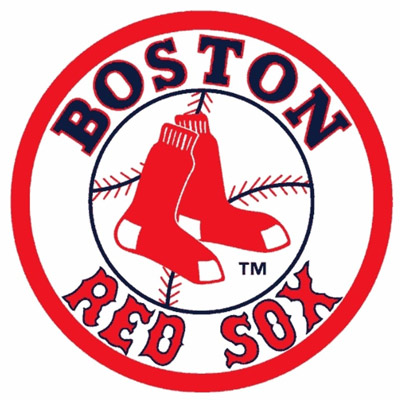 Identity isn’t confined to the person. Identity is historical, tribal, and regional. How many people in New England have you heard champion the glory of the Alamo? How many people in New York do you hear glorify the Red Sox (besides me)? Identity is just as much linked to where we live as it is who we are “on the inside”. Where we live has a history, and history is part of identity.
Identity isn’t confined to the person. Identity is historical, tribal, and regional. How many people in New England have you heard champion the glory of the Alamo? How many people in New York do you hear glorify the Red Sox (besides me)? Identity is just as much linked to where we live as it is who we are “on the inside”. Where we live has a history, and history is part of identity.
How easy is it to be a conservative in West Hollywood? How easy is it to be a liberal in Mississippi? If a person exists in a social environment, that person adapts to it, and therefore adopts at least some of the political affiliations (and consequential beliefs) of the region. Beliefs, affiliations, and traditions that are derived from the region’s history.
It’s like picking up a political dialect the same way my father’s southern drawl reappears whenever he visits Texas, and mine changes if I meet someone from Boston. The more a person changes their environment, the more complex their political dialect becomes. The more a person stays in the same place – if they’ve only ever been in one place – well… y’all can figure the rest from there. To argue politics, then, is to defend a region just as much as it is oneself. It’s regionally based, socio-cultural survival. And the more tied someone is to a single geo-political dialect, the more vigorously they fight for it. “All or nothing” – “Don’t Tread On Me” – “We came unarmed this time”.
We defend our turf just like any other species. No surprises there. In order to become part of the group we adopt many of its beliefs as our own. It’s how we operate. It’s how we survive. It’s the sort of human adaptation that created politics in the first place. The Nebraska Uncle went to Duke, but he wore red every Saturday because that was his regional tribe. And so we play, and so we fight, and so we hope for a win.
People Argue about Politics Because It’s More Interesting than the Weather
… that’s all I got on that one… Next.
People Argue about Politics to Feel Superior
Show me a person writing about politics who does’t slip into a tone of superiority and I’ll show you a three-toed alien from Orchlandsonville.
One must remember that we’re dealing with Belief. That’s why Christians will always fight Muslims and Republicans will always fight Democrats. (Liberals just watch it on TV and worthlessly hope that someday everyone will get along.) To each the other will always be fundamentally wrong or damned, and therefore inferior. Once the inferior threshold is crossed, it’s game over. No… it’s game deadlock. They believe. Belief (lacking personal experience – therein lies our only hope) is unbreakable. Political belief gives us an instant sense of superiority over the other who believes differently. The act of arguing about politics makes that sense of superiority swell, which like it or not, we all secretly enjoy more than Apple Pie.
…and so we play, and so we fight – some write – and we all hope for a win.
Published: by | Updated: 11-18-2016 09:45:40
